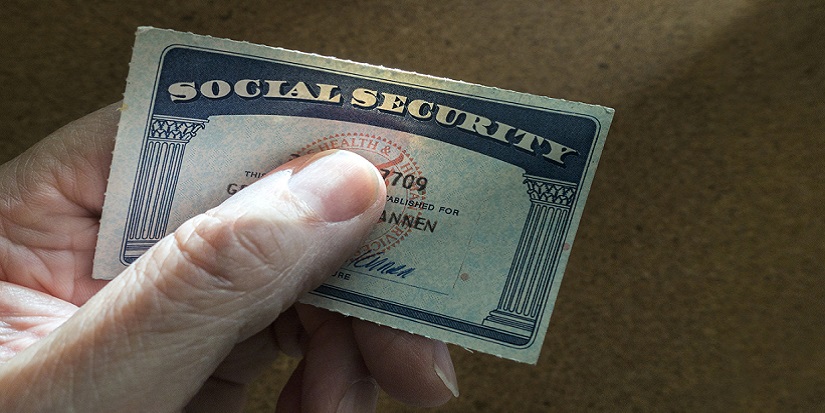Last month the 70 million or so people receiving Social Security benefits all got an 8.7% raise. That was their “cost of living adjustment” to offset last year’s inflation.
Meanwhile, some members of Congress look at the national debt, then look at all the money going to Social Security and Medicare benefits and think, “We can’t possibly afford this.”
These programs do indeed have challenges. According to the latest Trustee’s Report, the trust fund for retirement and survivor’s benefits will be depleted in 2034. The system will then only have its payroll tax income, which the trustees estimate would cover only 77% of scheduled benefits. The same will happen to Medicare Part A (hospital benefits) in 2028. It will then have to cut benefits by about 10%.
The brick wall, while not right in front of us, is getting closer.
The good news: Putting the programs on a sustainable path is easily possible with some combination of tax increases, benefit changes, or maybe a higher eligibility age.
Congress isn’t seriously discussing any of those. They have other ideas, though. One may sound sensible but in fact would guarantee a recession, thereby hurting not just retirees but everyone else, too.
Yes, we need to do something. But this isn’t it.
Guaranteed Uncertainty
Some senators have been saying two things that don’t fit together.
First, they promise not to cut Social Security benefits.
Second, they want an annual review of Social Security during which they will decide whether to approve the next year’s benefits, or maybe cut them.
In other words, “We must give ourselves a regular opportunity to do this thing we promise we won’t do.” That’s odd—kind of like a reformed alcoholic occasionally opening a beer, just to make sure he remembers how. Probably unwise.
For Social Security, it would be even worse.
Under current law, Social Security and Medicare operate outside the yearly budget process. Anyone who meets certain requirements (age, working years, etc.) gets paid the amount a formula says they should. The House and Senate don’t have to vote more money every year because these programs have their own dedicated funding—mainly payroll taxes.
Congress can change the rules if it wants, and occasionally has. But Social Security and Medicare are normally on fiscal autopilot.
This has advantages, one of which is certainty. People who reach retirement age know they’ll receive a certain benefit each month for life. It may not be much, but it’s guaranteed.
This certainty gives a large group of consumers enough confidence to keep buying all the stuff that adds up to economic growth.
Put those words together and you get consumer confidence, which any economist will tell you is pretty important to growth.
Spreading Damage
Suppose the senators get their way, and Congress gives itself an annual requirement to reauthorize Social Security and Medicare.
Apart from whatever they might change, the mere fact they’re considering changes will have an effect. Retirees who depend on Social Security (i.e., most of them) will quickly realize their income and healthcare isn’t guaranteed at all. It will change the incentives of every buying decision.
In that scenario, the rational choice will be to scrutinize your spending, eliminating anything you can and increasing your savings, if possible.
The damage will quickly spread to the businesses who serve retirees. Seeing sales drop, they may have to lay off workers, who will then cut their spending. Their stock prices will fall, causing a reverse wealth effect for shareholders who may then reduce their spending, too. Some retirees may turn to their adult children for help, hitting the disposable income of those households.
This is about Medicare, too, which doesn’t just take care of senior citizens. It’s also revenue for hospitals, doctors, drug and medical device makers, nursing homes, and more. If retirees can’t pay the out-of-pocket portion and thus don’t seek treatment, those businesses lose income, too.
That process is how recessions begin. Other things matter as well, but this hit to consumer confidence sure wouldn’t help. And it would be completely unnecessary.
Economic Disaster
Some who like this idea compare it to the defense budget, which Congress approves yearly. Social Security and Medicare should do the same, they say.
Fair enough. Let’s talk about how defense spending works.
We call companies like Raytheon (RTX) defense contractors because they have contracts with the government. Say Congress authorizes $50 billion for missiles. The company then gets a multi-year contract, with penalties should Congress change its mind.
This is necessary so the companies will have the confidence to build missile factories. They have no incentive to make capital investments if their only customer can back out anytime. So if Congress wants missiles, it has to make some guarantees.
Similarly, if they want consumer spending, killing the confidence that generates it doesn’t help. The recession that would likely follow would reduce income which, in our system, would also reduce tax revenue and raise other spending. Both make the debt bigger, not smaller.
Do we need to fix Social Security and Medicare? Definitely. But making them annually negotiable would be an economic disaster.
See you at the top,





